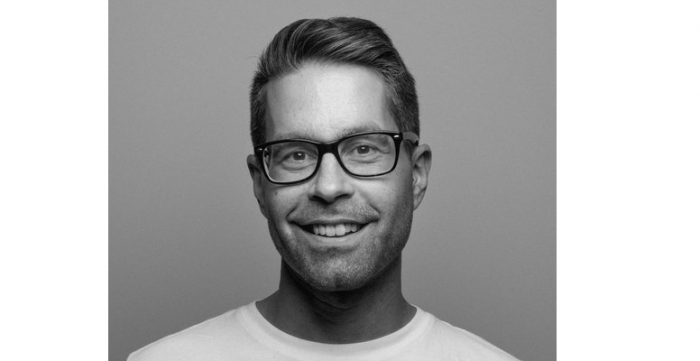This month we feature an exclusive interview with Senior Music Supervisor at Sony Interactive Entertainment, Duncan Smith who shares insights into his career to date and what inspired him to pursue a career in supervision.
By Dominic Bastyra / Wake The Town

This month we feature an exclusive interview with Senior Music Supervisor at Sony Interactive Entertainment, Duncan Smith who shares insights into his career to date and what inspired him to pursue a career in supervision. Read the full interview below.
How long have you been working in supervision?
I started as a music supervisor at PlayStation 10 years ago – my first job in supervision.
When did you first learn about supervision and decide it was something you wanted to pursue?
I never planned to become a supervisor. I had a circuitous route through the music industry following my love of music and have been lucky enough to find myself in a position that regularly calls upon the knowledge, experience & relationships that I’ve developed along the way. I could rewrite history & pretend it was all part of a master plan but that would be a lie!
That route has included being a drummer in an indie band, DJ’ing & promoting parties, working at a record shop, artist management, A&R, and music PR – where I did club & radio promo for the likes of Gorillaz, Amy Winehouse and Mark Ronson. I then got the opportunity to join the music team at PlayStation who were looking to expand and wanted someone with my kind of knowledge & contacts (luckily gaming excellence wasn’t essential).
Was there a particular film/game that inspired you to explore supervision?
Music in visual media has always been important to me & certain examples have made a huge impression – whether that’s an iconic score like Blade Runner, inventive use of commercial tracks like in Trainspotting, or the Guinness surfer advert. I’ve then daydreamed about how cool it would be to play a part in making that happen!
In terms of games it was playing WipEout on the PS1 that blew my mind. Before then games had had iconic scores but were limited to pretty basic 8-bit & chip music. The PlayStation console allowed games to feature CD-quality music for the first time and WipEout, the futuristic racing game, embraced the emerging dance music scene in the UK. It was the first time I’d heard the likes of Chemical Bros and Leftfield outside of a club other than on mixtapes or specialist radio shows. They’d never been synched and weren’t troubling daytime Radio One – so that someone had taken a chance & used them so effectively on a game that would introduce them to millions of people worldwide was impressive.
Club culture was used to market the game too – changing many people’s perception of games including my own. I actually turned up one week to DJ at a club where I had a residency, The Complex in Islington, to find they’d installed a load of PlayStation console cabinets. Later on during my set I looked up to see Aphex Twin playing WipEout by the side of the dancefloor. You can’t buy that kind of endorsement!
What’s the biggest challenge you’ve faced in the job?
Being in-house at PlayStation I’m lucky enough to regularly work on boundary-pushing projects in terms of tech & it’s up to me to look at how music can be best used. For example the projects I’m currently working on include our first feature length VR title, ‘Blood And Truth’, a live-action interactive drama, ‘Erica’, and the new project from Media Molecule, ‘Dreams’, which is a powerful creative engine with its own audio tool that I’m working with composers and artists on. And we recently released a live-action VR music performance by Tom Grennan on the PS Store that involved coming up with a whole new business model.
Hence I’m constantly being challenged and trying to get my head around new concepts and opportunities – and then trying to explain them to artists and rights-holders! But the sense of always moving forwards, being regularly challenged and learning is why I’ve been here for a decade.
What’s your dream project? Are there any particular directors, brands, artists or composers you’d like to work with?
A dream project for me is one where the music is valued and has been considered early on, with enough time and money budgeted for it. Combine that with a strong, interesting creative, and having a good, trusting relationship between the producer/director and myself – that’s the dream project.
What’s the best/your favourite use of music in a game?
My favourite composed game scores are probably The Last Of Us by Gustavo Santaolalla & Journey by Austin Wintory. Both scores (& the games themselves) are beautiful and show how far the industry has come.
What advice would you give to those looking to become supervisors?
Make sure you’re in it for the right reasons. Passion for music, and wanting to share your passion, should be key driving forces, but of course it’s equally important to know about copyright & licensing. You’ll need the ability to juggle different projects, wear different hats & get on with many different personality types – often all at the same time! Be organised, be tenacious, and be able to pay attention to detail whilst having the humility and vision to enjoy being part of projects way bigger than yourself. If you’re in it for the glamour or the money you’re in the wrong place!
We would like to thank Duncan for taking the time to chat with us. Check out our blog for more exclusive news, interviews and membership offers.
